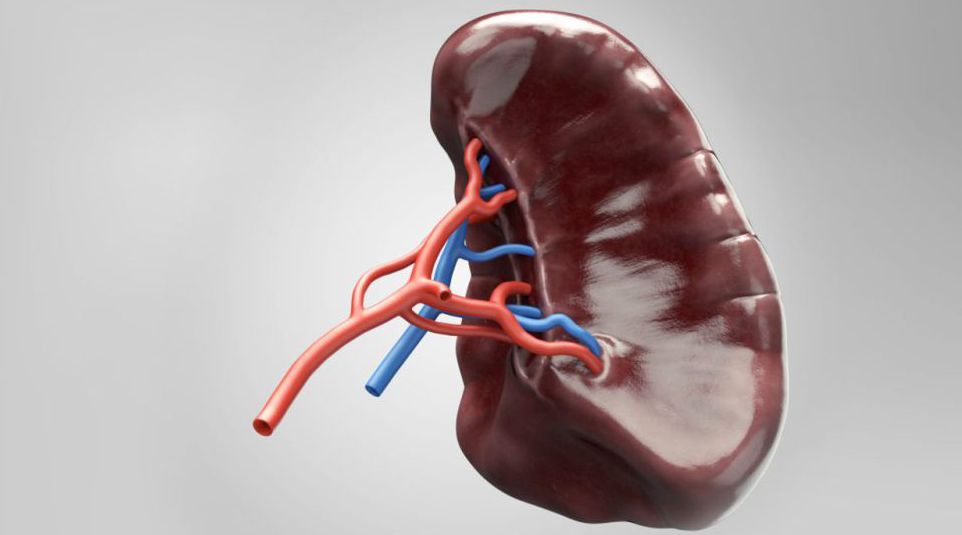
1. Increased Risk of Infections
One of the most significant complications following splenectomy is the increased susceptibility to infections. The spleen plays a key role in filtering bacteria and other pathogens from the blood and helping to fight infections. Without the spleen, the body’s ability to manage infections is compromised, making patients more vulnerable to certain types of bacteria, especially encapsulated bacteria.
a. Infections Caused by Encapsulated Bacteria
The absence of the spleen primarily affects the body’s ability to fight infections caused by encapsulated bacteria, which are surrounded by a protective coating that makes them harder to detect and attack by the immune system. These bacteria include:

- Streptococcus pneumoniae: A leading cause of pneumonia, meningitis, and bloodstream infections.
- Haemophilus influenzae: Responsible for respiratory infections and meningitis.
- Neisseria meningitidis: The bacterium that causes meningitis and sepsis.
Without the spleen, these bacteria can proliferate more easily, leading to severe infections that can be life-threatening if not promptly treated. As a result, individuals who have undergone splenectomy are often prescribed prophylactic antibiotics for a period after the surgery and may need to take antibiotics during any illness or infection.
b. Other Infections
In addition to encapsulated bacteria, individuals without a spleen are also at an increased risk for other infections, such as viral and fungal infections, due to the weakened immune response. Some of these infections may not necessarily be more severe than in those with an intact spleen, but the body’s inability to clear pathogens quickly makes it harder to manage them, which can lead to complications or prolonged illness.
To mitigate the risk of infections, patients are advised to undergo vaccinations before and after the splenectomy. These vaccines often include pneumococcal, meningococcal, and Haemophilus influenzae type b (Hib) vaccines.
2. Risk of Sepsis
Sepsis is a potentially fatal condition that arises when the body’s response to infection becomes uncontrolled, leading to widespread inflammation and damage to organs. After splenectomy, individuals are at a higher risk of developing sepsis, particularly if they develop an infection from encapsulated bacteria.
In some cases, infections that would otherwise be manageable in healthy individuals can quickly escalate into sepsis in patients without a spleen. Signs of sepsis include fever, rapid heartbeat, low blood pressure, confusion, and difficulty breathing. This is a medical emergency, and anyone exhibiting symptoms of sepsis after splenectomy should seek immediate medical attention.
a. Prevention and Early Detection
The key to preventing sepsis after splenectomy is early detection and prompt treatment of infections. Patients are often prescribed a course of prophylactic antibiotics following surgery and may need ongoing treatment if they develop symptoms of infection. Maintaining a high level of vigilance, particularly during the first few months post-surgery, is essential to detect and treat infections before they progress to sepsis.
3. Blood Clotting Disorders
Another complication after splenectomy is the risk of blood clotting disorders. The spleen plays an important role in regulating platelets in the bloodstream. Without the spleen, some patients experience thrombocytosis, a condition characterized by an abnormally high platelet count. Elevated platelets can lead to a greater risk of blood clots, which can cause serious complications such as stroke or deep vein thrombosis (DVT).

a. Thrombocytosis and the Risk of Clots
After splenectomy, the liver and bone marrow typically take over some of the spleen’s functions, including platelet regulation. However, these organs are not as effective at controlling platelet levels, leading to an increased risk of thrombocytosis. When platelet levels become too high, they can aggregate and form clots that block blood vessels, leading to complications such as heart attack, stroke, or pulmonary embolism.
In some cases, medications such as blood thinners may be prescribed to reduce the risk of clot formation. Close monitoring of platelet counts is important during the first few months after surgery to ensure that they remain within a safe range.
b. Increased Risk of Bleeding
Interestingly, the risk of bleeding is another issue that can arise after splenectomy. While some patients experience elevated platelet levels, others may suffer from an increased risk of bleeding due to a deficiency in the blood-clotting mechanisms. This paradoxical situation arises because platelets are often used up in clot formation, leaving the body more susceptible to bleeding.
Patients who experience excessive bleeding, even with small injuries, may require additional treatments to help control bleeding. This can include blood transfusions or the use of medications to enhance blood clotting.
4. Iron Deficiency and Anemia
The spleen plays a role in recycling iron from old red blood cells. When the spleen is removed, the body may have difficulty managing iron levels, which can lead to iron deficiency and anemia. Anemia occurs when the body doesn’t have enough red blood cells to carry oxygen effectively throughout the body, leading to fatigue, weakness, and other symptoms.
a. Iron Deficiency Post-Splenectomy
The removal of the spleen affects the body’s ability to effectively recycle iron, which is necessary for red blood cell production. Over time, this can lead to iron deficiency and anemia. Iron deficiency is particularly concerning because it can worsen fatigue and weakness, which are already common in the early recovery phase after surgery.
Patients who have undergone splenectomy are often monitored for anemia and may be prescribed iron supplements to prevent or treat iron deficiency. A diet rich in iron, including sources such as red meat, poultry, leafy greens, and fortified cereals, is also recommended to help maintain healthy iron levels.
b. Risk of Hemolytic Anemia
In some cases, the removal of the spleen can lead to a condition known as hemolytic anemia, where red blood cells are destroyed more rapidly than they are produced. This can be particularly problematic in patients with pre-existing blood disorders, such as sickle cell disease or thalassemia. Hemolytic anemia can lead to symptoms such as jaundice, fatigue, and shortness of breath. Treatment for hemolytic anemia may involve blood transfusions or medications to manage the underlying cause.
5. Long-Term Health Risks
While the initial risks following splenectomy are the most immediate concern, there are also long-term health implications to consider. Individuals without a spleen must take special precautions to maintain their health and prevent complications.
a. Increased Susceptibility to Infections
As mentioned earlier, splenectomy increases the risk of infections. However, this risk does not go away entirely after recovery. People who have had their spleen removed remain more susceptible to infections for the rest of their lives, though the risks are less immediate once the recovery period is over. Regular vaccinations and timely medical attention for illnesses are essential in reducing this long-term risk.
b. The Need for Regular Medical Monitoring
Patients who have undergone splenectomy should continue to have regular check-ups with their healthcare provider to monitor for complications such as infections, blood clotting disorders, or anemia. Long-term monitoring is particularly important for individuals who have underlying health conditions or who are older, as they may face additional risks associated with the procedure.
c. Lifestyle Adjustments
Living without a spleen requires some lifestyle changes to reduce the risk of complications. This includes maintaining a healthy diet, staying up-to-date with vaccinations, taking preventive antibiotics when necessary, and avoiding situations that could increase the risk of infection or injury.
6. Psychological Effects of Splenectomy
In addition to the physical complications, there can also be psychological effects following splenectomy. Patients may experience anxiety, depression, or concerns about their long-term health, particularly if they develop complications or face additional treatments after surgery.
For children, in particular, the emotional impact of splenectomy can be significant, as they may have difficulty understanding the procedure and its implications. Providing psychological support during recovery, including counseling or support groups, is important to help patients cope with the emotional challenges of life after splenectomy.





